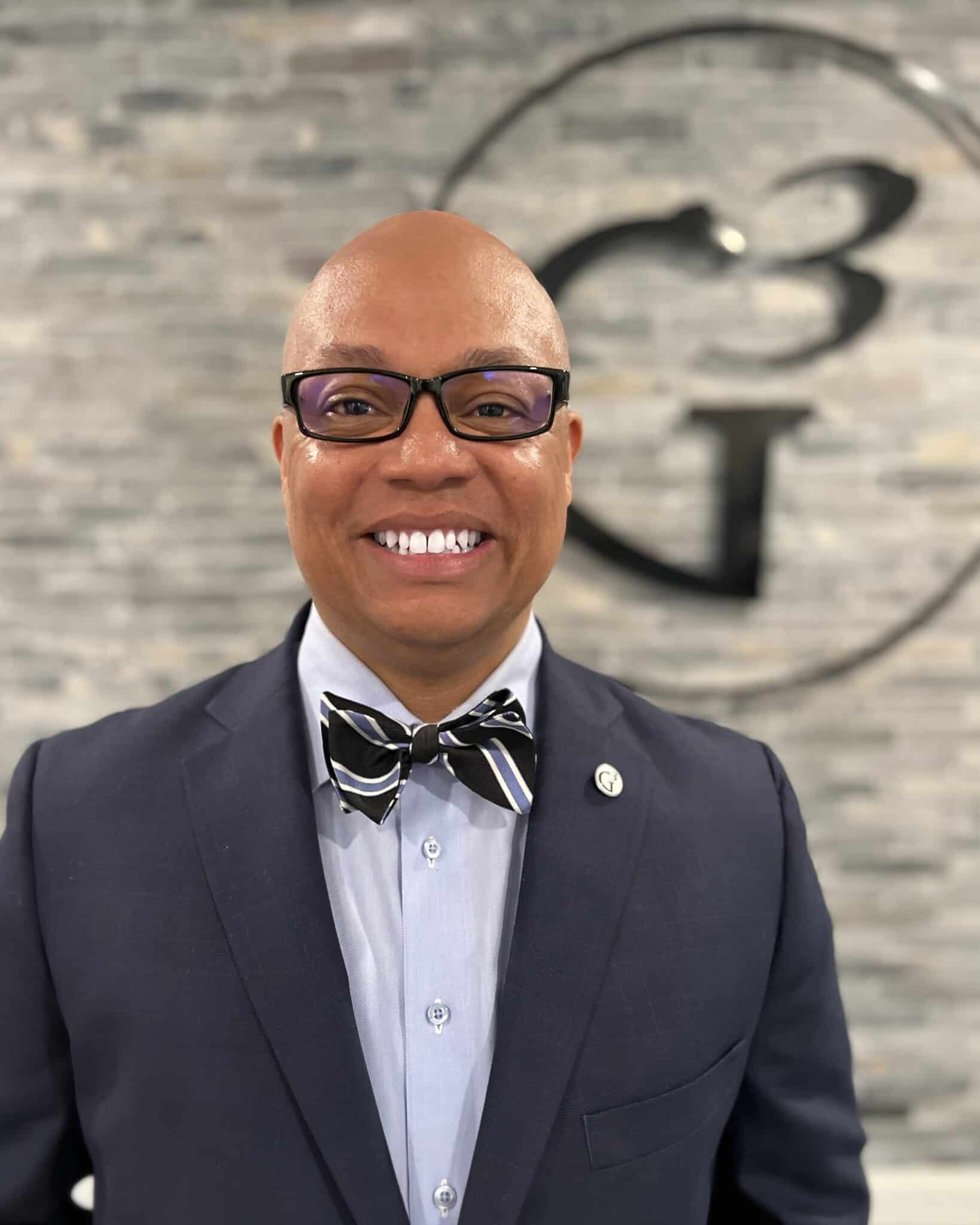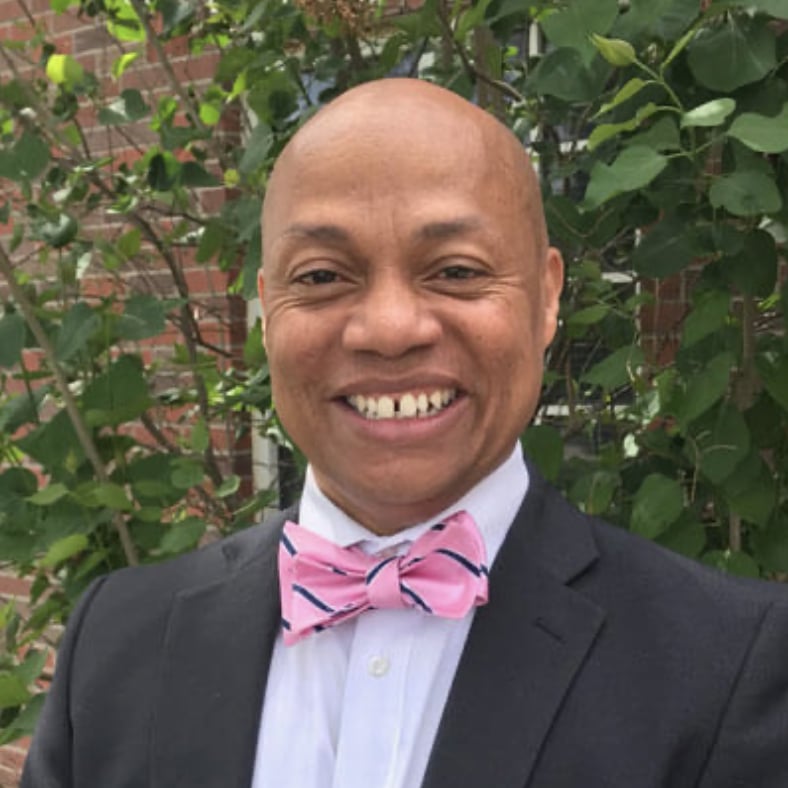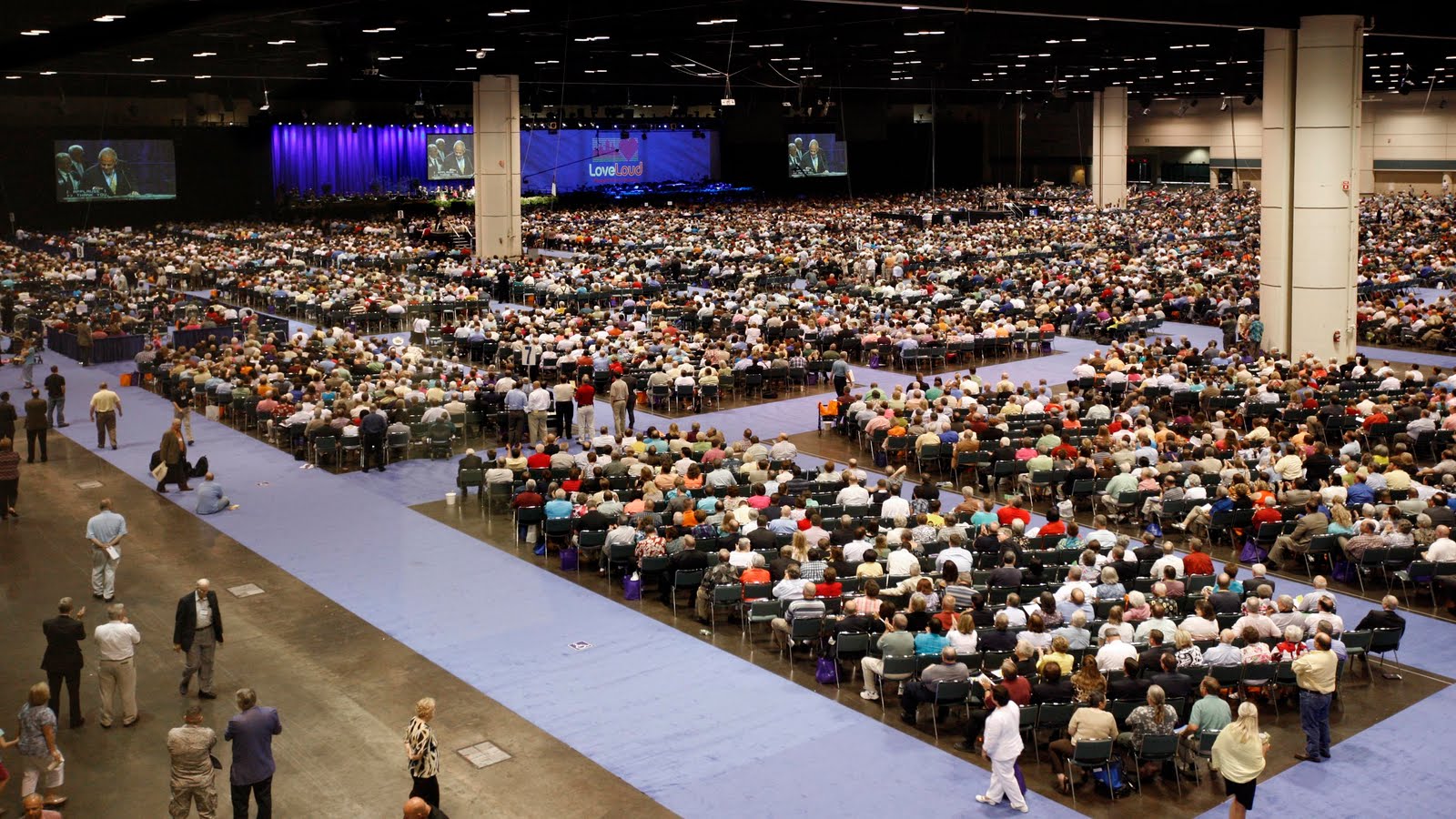On March 11, 2011, a 9.1-magnitude earthquake rocked Japan. The center of the quake was said to have been in the North Pacific, 81 miles east of Sendai, the largest city in the Tōhoku area.
The Pacific Ocean is home to the largest seismic belt on the planet. Japan is accustomed to and prepared for earthquakes, much like its Pacific neighbor to the east, California. The rare tsunami accompanying an earthquake is often more damaging than the quake itself.
Those familiar with the region pay little attention to earthquakes. Due to their infrequency, many people ignore the warnings associated with tsunamis. Ignoring such warnings can have disastrous consequences, as more than 20,000 lives were lost on the Sendai coast.
For the past few years, many in the Southern Baptist Convention (SBC) have disregarded numerous warnings of their own. Many in SBC leadership pay little attention to the cracks in the denomination’s core. The latest is Rick Warren’s decision to appeal the SBC’s decision to kick Saddleback Church out of the fellowship. This is a tsunami warning for the SBC. There are some in SBC circles who regard Warren’s commitment to installing three women pastors at Saddleback Church as a clear violation of Scripture and the Baptist Faith and Message 2000.
The crucial question is: Will the SBC heed the most recent tsunami warning and stand on the high ground of Scripture, or will a tsunami wave of egalitarianism destroy its shores?
The Earthquake before the Tsunami: MLK 50 & Social Justice
Long before the terror of a 500-mile-per-hour tsunami wave traveling ashore, the Tōhoku area’s residents would have been wise to pay attention to the early warning signs of a tsunami—an earthquake. Likewise, recent history will attest that the SBC has endured numerous quakes that should have served as an early warning sign for what was coming.
The first seismic event to hit the SBC occurred in 2018 during the commemoration of the 50th anniversary of Martin Luther King Jr.’s death. The Gospel Coalition collaborated on a joint event with the SBC’s Ethics and Religious Liberty Commission (ERLC). The MLK 50: Gospel Reflections from the Mountaintop event occurred in Memphis, Tennessee. Speakers included Charlie Dates, Jackie Hill-Perry, Eric Mason, and others.
Eric Mason, pastor of Epiphany Fellowship Church in Philadelphia and author of Woke Church, took to the podium. Mason reflected on what he believed to be a pivotal time in history. Connecting the historical racism of King’s day with the present-day experience of blacks within white evangelicalism, Mason told the audience,
Multiplicities of Negros ain’t feeling evangelicalism…. Whites have to assume … that because there is offense … you need to press into that particular offense and begin to educate yourself on … not having reductionistic ways in which you try to cause racial reconciliation, like through hiring non-qualified African-Americans to be the multi-ethnic engineers in your local churches…. And you know they’re not qualified because Blacks haven’t hired them.
Eric Mason, MLK 50 (10:46)
The audience filled the air with laughter and numerous “amens.” Mason continued,
And it works against unity when you hire somebody that we not feeling. And you’re wondering why multi-ethnicity isn’t happening at your church? It’s because you have a person that is black on the outside but angloid on the inside.
Eric Mason, MLK 50 (12:06)
Charlie Dates, once one of the SBCs most popular and celebrated preachers, used MLK 50 to connect King’s social gospel to the economic, political, and educational needs of today’s black communities. In Dates’ view, it’s our “white evangelical brothers and sisters” who bear the responsibility to repair disparities within black communities. Dates reserved his sermon’s homiletic punch for the conclusion of his message, and he could not have been more explicit when he said,
This is what has frustrated many black churches with our white evangelical brothers and sisters, those of you who have a firm grasp on orthodoxy, who understand the finer tenants of the gospel, who launch coalitions, who sustain commissions, and who produce curriculum and lobby with Congress. We have expected you to be our greatest allies in the struggle against injustice. We wanted you to tell your churches and your congregations that God was never pleased with segregation and the systems that segregation has created.… We wanted you to end the long night of systemic injustices. We wanted y’all to cry about the public school-to-prison pipeline.… And we wanted you to shout it from your pulpit.
Charlie Dates, MLK 50 (20:25)
With Mason and Dates framing the foundation of their ideas on the San Andreas fault line of King’s social gospel, each speaker charged white evangelicalism with being responsible for and obligated to fix the disparities experienced in black America.
The Village Church pastor of Fort Worth, Texas, Matt Chandler, would join the chorus of speakers, describing what his church was doing to promote black empowerment in the pulpit. Chandler informed the audience that in seeking a pastor for a church plant, the Village Church had sought to hire a person of color in the name of diversity. Regarding diversity, a recruitment agency asked Chandler about his hiring preferences. The agency asked, “If we identify a black seven and an anglo eight, which would you prefer?” Chandler replied he would prefer to hire a black seven over an anglo eight. Chandler added that he would not hire the black six because that would feel too much like the tokenism he’s fighting against.
The MLK 50 event should have served as the first of many tremors felt within SBC circles. If Southern Baptists had been aware in 2018 of the tremor this event represented, they might have been better prepared for what happened next.
From Resolution 9 to Beth Moore: An Egalitarian Wave
What happened next couldn’t have been predicted. The boulders of white guilt that are necessary to advance social justice should have made white evangelicalism aware that the MLK 50 event was a small tremor before the big one. The big earthquake would happen in 2019 when a six-part series published in the Houston Chronicle looked into allegations of sexual abuse in the Southern Baptist Convention. The Chronicle exposé covered 20 years of history and found 700 cases of sexual misconduct in the SBC, which has 47,000 churches and 14.5 million members.
With the #MeToo movement gaining momentum after the Supreme Court confirmation of Judge Brett Kavanaugh, SBC leaders needed to rally to answer #ChurchToo’s calls for an independent investigation into the sexual misconduct allegations.
Author and Bible teacher Beth Moore added her commentary to the conversation. Moore had more to say in light of the sex abuse scandal after writing her own story of being a female Bible teacher in a male-dominated SBC. In speeches, Moore indirectly linked sexual abuse to the doctrine of complementarianism. Moore says that she worries that complementarianism—the idea that men and women have different roles in the church—creates a place where abuse can happen. For Moore, the need for women to hold positions of power and leadership within the church is paramount to creating safety for the abused.
Speaking at an ERLC event, Moore asks, “Has a culture prevalent in various circles of the SBC that formed and burgeoned out of it contributed to it (sexual abuse)?”
“Absolutely, and heavily.”
When Warren and other egalitarians advocate for female pastors, their position is solidly based upon strong emotion rather than sound exegesis.
As the debate between complementarianism and egalitarianism (now called “soft-complementarianism”) shifted from speeches to the SBC convention floor, the floor would become ground zero of a two-year debate about critical race theory (CRT). During the closing hours of the SBC’s annual meeting, Resolution 9 on Critical Race Theory and Intersectionality passed. With it, critical race theory and intersectionality could now be used as “analytical tools that can assist in evaluating a range of human experiences.”
In the two years after Resolution 9 was passed, the societal impact of these ideas had made its way into the public square. In response to the tragic death of George Floyd, Black Lives Matter (BLM) protests wreaked havoc in the streets. Thereafter, CRT pedagogies, under the guise of social-emotional learning (SEL), destroyed schools. And diversity, equity, and inclusion (DEI) policies in the workplace made it hard for people to get along, which led to seismic ethnic divisions in the U.S.
What is a Pastor?
As issues of wokeism and questions surrounding women’s roles rocked the evangelical world, Rick Warren of Saddleback Church in Lake Forest, California, took to social media in May 2021 to celebrate his decision to ordain three women pastors.
Furthermore, the denomination has gone through a number of ideological earthquakes. Will the next tsunami wave be too much to handle? The SBC has capitulated under the weight of wokeism and intersectionality. Additionally, the sexual abuse scandal has exposed many cracks and fault lines in a foundation that used to be rock solid.
This decision to go public did not go unnoticed. The SBC’s Credentials Committee, which decides if member churches are in healthy cooperation with the denomination, was under pressure to break ties with Saddleback Church. Many people saw Warren’s decision and subsequent social media posts as a direct challenge to the BF&M 2000 and the Scriptures, which hold that only biblically qualified men should be pastors.
After a year of review, from 2021 to 2022, the Credentials Committee would report to convention attendees that the Baptist Faith and Message 2000 (BF&M 2000), the group’s governing document, was unclear on women serving as pastors.
As a gender-confused society wrestled with the question, “What is a woman?” Southern Baptists were asking, “What is a pastor?”
Saddleback Disfellowshipped
Nine months after the June meeting, in February 2023, and further review of the BF&M 2000, the Credentials Committee decided it was time to disfellowship Saddleback Church. The Committee’s statement said that Saddleback Church “has a faith and practice that does not closely align with the Convention’s adopted statement of faith, as shown by the fact that the church has a female teaching pastor working in the office of pastor.”
Some applauded the Credentials Committee’s decision. Still, others say the leftward drift could have been avoided had SBC organizations like the North American Missions Board (NAMB) listened to calls to stop giving money to church planters promoting women as pastors. Rick Warren’s successors, husband and wife Andy and Stacie Wood, now serve as co-pastors at Saddleback. Before their current roles at Saddleback, the pastoral duo were both SBC-NAMB-supported church planters at Echo Church in Sunnyvale, California.
Tsunami Warning
As Warren considers the landscape of Southern Baptist life, he is determined to fight for people like Andy and Stacie Wood. During The Russell Moore Podcast, Rick Warren spoke of having clarity rather than confusion on the subject of women pastors. Warren shared with the audience the three verses of Scripture that convinced him that women, too, can be pastors. The first verse, Matthew 28:18–20, is the great commission, where Jesus tells the disciples to “go and make disciples of all nations.” In the second verse, Warren mentioned Acts 2:17–18, the account of the day of Pentecost, where 3,000 were gathered, hearing the message of the gospel in their own language. The third verse Warren cited is found in John 20. It tells the story of Mary Magdelene as she follows an angel’s instructions and informs the disciples of Jesus’ resurrection.
If Rick Warren were asked to write a paper interpreting the previous three verses he used for an Introduction to Biblical Hermeneutics class at Southwestern Baptist Theological Seminary, I’m certain he’d get a failing grade, a reprimand from his professor, and a sea of red mark corrections on his paper. Warren did not cite or interact with any of the Biblical passages that addressed the qualifications for a pastor (1 Timothy 2:11–14; 1 Timothy 3:1–7; and Titus 1:6–9).
As Warren begins the appeal process and the decision heads to the SBC’s convention floor, the question is not one of proper biblical hermeneutics regarding women pastors. When Warren and other egalitarians advocate for female pastors, their position is solidly based upon strong emotion rather than sound exegesis. The SBC’s current challenge is that it has been shaken by pragmatism and a leftward cultural drift. Furthermore, the denomination has gone through a number of ideological earthquakes. Will the next tsunami wave be too much to handle? The SBC has capitulated under the weight of wokeism and intersectionality. Additionally, the sexual abuse scandal has exposed many cracks and fault lines in a foundation that used to be rock solid.
Will the SBC be able to withstand an egalitarian tsunami as it approaches the shore? The higher ground of scriptural sufficiency is the sure foundation upon which to build. Let’s hope that Southern Baptists can withstand the next challenge.





